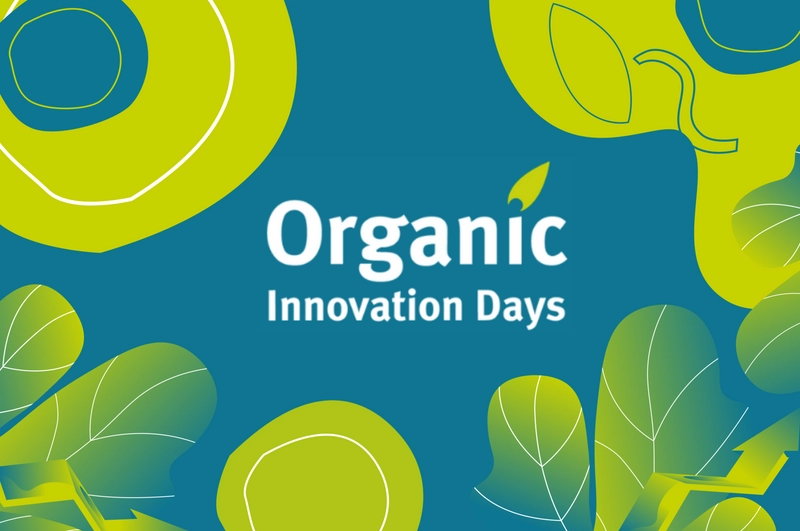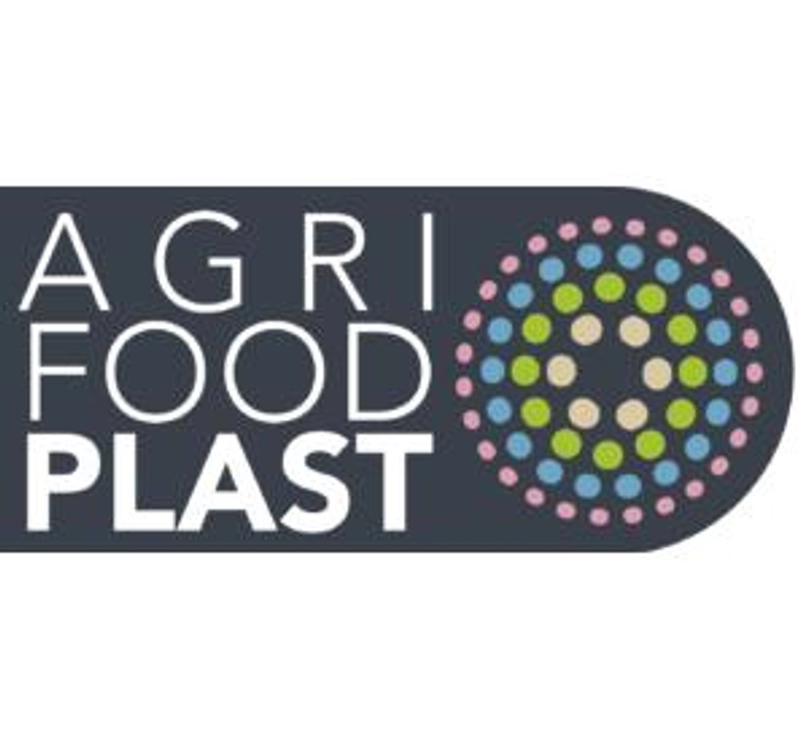Food & Beverages Brussels içindeki etkinlikler


Organic Innovation Days
Organic Innovation Days: Shaping the Future of Organic and Agroecological Food Systems
Every year, Organic Innovation Days brings together researchers, policymakers, industry leaders, and changemakers in the heart of Europe to explore the latest advancements in organic and agroecological innovation. Held in Brussels at the prestigious WSBI - World Savings and Retail Banking Institute, the event is more than just a meeting it’s a strategic crossroads for the future of sustainable agriculture in Europe.
As the only EU-wide annual event fully dedicated to organic and agroecological research, this gathering plays a critical role in guiding food systems toward more resilient, fair, and environmentally friendly models.
Launching a Vision: The Strategic Research & Innovation Agenda (SRIA)
This year’s edition of Organic Innovation Days is particularly significant, as it marks the official launch of the new Strategic Research & Innovation Agenda (SRIA) for Organics and Agroecology. This agenda is expected to define priorities for research and development across the organic sector, providing a roadmap that supports systemic change in how food is produced, processed, and consumed in Europe.
The SRIA isn’t just an internal document for researchers it’s a tool to align stakeholders, shape funding priorities, and inform EU-level policies on sustainable food production. Importantly, the SRIA is closely linked to two of the European Union’s flagship frameworks:
The Farm to Fork Strategy, which seeks to ensure healthier and more sustainable food systems
The EU Biodiversity Strategy, aimed at restoring ecosystems and improving resilience through nature-friendly practices
By aligning with these strategies, the SRIA ensures that the organic movement contributes actively and measurably to Europe’s Green Deal objectives.
A Platform for Collaboration and Exchange
Organic Innovation Days offers a unique space where science meets practice, and where innovation is grounded in real-world challenges. Participants include:
Organic farmers and producers
Academic researchers and institutions
Policy advisors and EU representatives
NGOs and civil society organisations
Agri-tech developers and startups
This diverse representation makes the event a truly cross-sectoral platform, encouraging meaningful dialogue and collaboration that extends far beyond the conference room.
Discussions during the event often focus on:
Scaling agroecological practices without compromising principles
Bridging the gap between science and farm-level application
Co-creation of innovation with farmers and consumers
Developing policy tools that support organic transitions
The Role of Research in Building Sustainable Food Systems
One of the most vital themes at Organic Innovation Days is the central role of research and innovation in transitioning to sustainable food systems. While organic and agroecological farming have long demonstrated environmental and health benefits, scaling these practices requires continuous innovation, both in technology and knowledge systems.
Examples of such innovation include:
Improved crop rotation techniques to reduce dependence on external inputs
Innovations in organic pest control and soil fertility
Digital tools tailored for small-scale and organic farmers
Participatory research models that involve farmers in trial design and testing
By spotlighting these developments, the event inspires stakeholders to rethink the relationship between science, policy, and practice and to invest in models that prioritize ecosystem health and social equity.
Supporting the Farm to Fork Vision
The European Union’s Farm to Fork Strategy has set ambitious goals: to reduce pesticide use by 50%, increase organic farming to 25% of all EU farmland, and improve overall sustainability in food production and consumption. These targets are bold and they require coordinated, strategic efforts to become reality.
Organic Innovation Days plays a crucial role in supporting this vision by:
Bringing stakeholders into a shared dialogue about implementation
Identifying bottlenecks in research funding and policy frameworks
Sharing success stories and lessons learned from across Europe
Encouraging open science and inclusive innovation approaches
The event thus acts as a catalyst for action, connecting on-the-ground realities with high-level policy direction.
Looking Ahead: The Future of Organic and Agroecological Innovation
The organic and agroecological sectors are evolving rapidly, and events like Organic Innovation Days help shape that evolution. By giving a platform to innovative thinkers and doers, the event helps define what the next generation of organic farming will look like smarter, more inclusive, and more connected to the broader sustainability goals of our time.
As climate change, biodiversity loss, and soil degradation continue to challenge global food systems, the importance of agroecology and organic approaches becomes even clearer. The SRIA is a milestone in this movement, but it's also a starting point. It will guide the sector toward:
Greater policy recognition
Increased research investment
Scalable solutions rooted in agroecological principles
Stronger farmer–scientist–consumer networks
Innovation Rooted in Values
At its core, Organic Innovation Days is not just about innovation for innovation’s sake. It’s about rethinking systems, realigning priorities, and rooting progress in values like fairness, health, biodiversity, and community.
In a world searching for answers to the food challenges of tomorrow, this event is proof that solutions already exist they just need the right support, collaboration, and visibility to grow.
Whether you’re a policymaker, a researcher, a farmer, or simply someone who believes in the power of sustainable food, Organic Innovation Days is where your voice matters and the future begins.


AGRIFOODPLAST Conference
AGRIFOODPLAST is an innovative research initiative that brings together global experts, businesses, and decision-makers to address one of the most pressing challenges of our time: the intersection of plastics and food systems. While plastics play an essential role in modern agriculture, aquaculture, and fisheries—helping with storage, packaging, and the transportation of food—there are significant concerns regarding their environmental impact. The use of plastic in food production has led to pollution, with microplastics and chemicals leaching into ecosystems, potentially posing risks to both biota and humans. The scientific community is now examining how plastics accumulate in agricultural environments, and their possible long-term effects on human health and the environment.
The AGRIFOODPLAST initiative provides a platform for scientists, farmers, businesses, and policymakers to present and debate the latest research on these critical issues. It highlights the role of plastic in food storage and packaging, while also recognizing the ongoing discussions about the safety of these practices. As plastics are known for their durability and resistance to degradation, they tend to accumulate in the environment over time, causing serious concerns about their persistence in soils, plants, and the food chain. This accumulation can lead to the up-concentration of microplastics, which may carry harmful chemical additives that pose significant toxicological and ecotoxicological risks.
One of the key topics at the AGRIFOODPLAST event is the emerging issue of nano- and microplastics and their associated chemicals in food production and packaging. Scientists are delving deeper into understanding how these tiny particles interact with agroecosystems and the food we consume. As these plastics break down in terrestrial environments, they disrupt soil health and microbial functions, potentially leading to contamination of crops. This contamination not only threatens environmental sustainability but also raises concerns about the safety of food products, as plastic particles may enter the food chain, bringing with them a host of unknown risks.
While plastic pollution in aquatic environments has been studied for decades, only recently has the scientific community turned its focus to terrestrial contamination. The impact of plastics on soil health, crop production, and the food supply chain is becoming an increasingly urgent topic. As plastics become more embedded in agriculture, addressing the risks and finding viable solutions to mitigate these impacts is paramount. AGRIFOODPLAST offers a forum where stakeholders from various sectors can collaborate, share ideas, and work toward the development of safer and more sustainable practices in food production. By engaging with the latest research and discussing the necessary policy changes, the initiative aims to foster solutions that will reduce plastic contamination and ensure a more sustainable future for the agriculture and food industries.
Through these discussions, AGRIFOODPLAST is paving the way for a more sustainable and responsible approach to the use of plastics in food systems. It underscores the importance of balancing the benefits of plastic with the urgent need to safeguard environmental and human health. As the risks associated with plastics become clearer, this initiative provides a much-needed space for the development of strategies to mitigate their impact, pushing for policies that promote circularity and sustainability in the agri-food sector.